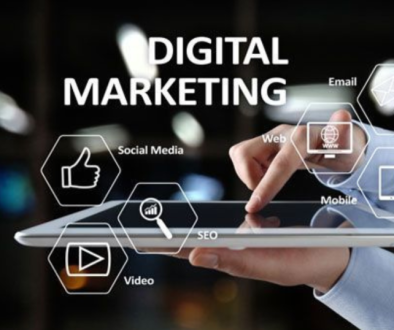Navigating the Digital World: Embracing Technology in Everyday Life
The digital world has transformed nearly every aspect of our lives, from how we communicate to how we work, learn, and entertain ourselves. As technology continues to evolve, understanding and navigating this digital landscape has become essential. This blog explores the various facets of the digital world, highlighting its impact on society, the economy, and our daily lives.
1. The Rise of the Digital Age
The digital world began its rapid expansion in the late 20th century with the advent of the internet and personal computing. Today, we live in an age where digital technology is embedded in nearly every aspect of our existence. From smartphones and social media to cloud computing and artificial intelligence, the digital age has ushered in unprecedented convenience, connectivity, and access to information.
The digital world is not just about the internet; it encompasses a wide range of technologies that have redefined how we interact with the world. This includes everything from digital media and e-commerce to online education and telemedicine. The shift towards a digital-first approach has been accelerated by the COVID-19 pandemic, which has forced individuals and organizations to adopt digital solutions at an unprecedented pace.
2. Digital Communication: Bridging the Gap
One of the most significant impacts of the digital world is the way it has transformed communication. Social media platforms like Facebook, Twitter, and Instagram have made it possible for people to connect with others across the globe instantly. Video conferencing tools such as Zoom and Microsoft Teams have become essential for both personal and professional communication, especially in the context of remote work and virtual meetings.
Digital communication has not only made the world smaller but has also given rise to new forms of expression and interaction. From emojis and GIFs to memes and viral videos, the digital world has created a new language that transcends geographical boundaries. However, this constant connectivity also comes with challenges, such as digital fatigue, privacy concerns, and the potential for misinformation.
3. The Digital Economy: Redefining Business and Commerce
The digital world has also revolutionized the economy, giving birth to what is now known as the digital economy. This refers to economic activities that are enabled by digital technologies, including e-commerce, online services, and digital payment systems. The rise of platforms like Amazon, Alibaba, and eBay has made it easier than ever for consumers to shop online, while businesses have access to a global customer base.
Digital transformation has become a priority for businesses of all sizes. Companies are leveraging digital tools to streamline operations, enhance customer experiences, and gain a competitive edge. Technologies like big data, artificial intelligence, and the Internet of Things (IoT) are driving innovation and enabling businesses to make data-driven decisions.
However, the digital economy also poses challenges, particularly for traditional brick-and-mortar businesses that may struggle to compete with online giants. Additionally, issues such as cybersecurity threats, data privacy, and the digital divide—where access to digital technologies is unequal—are critical considerations in this new economic landscape.
4. Education in the Digital World: A New Era of Learning
The digital world has profoundly impacted education, creating new opportunities for learning and knowledge-sharing. Online education platforms like Coursera, Udemy, and Khan Academy have made quality education accessible to people worldwide, regardless of their location. Digital tools such as interactive whiteboards, e-books, and learning management systems (LMS) have transformed the traditional classroom, making learning more engaging and personalized.
The shift to online learning during the pandemic has highlighted the potential of digital education, but it has also exposed challenges, such as the digital divide and the need for effective online pedagogy. Educators are now exploring hybrid models that combine the best of both digital and in-person learning to provide a more flexible and inclusive educational experience.
5. Digital Entertainment: A New Frontier
Entertainment is another area where the digital world has had a significant impact. Streaming services like Netflix, Spotify, and YouTube have changed how we consume media, offering on-demand access to movies, music, and videos. Video games have also evolved, with online multiplayer games and virtual reality experiences creating immersive worlds for players.
Social media has become a platform for content creators, influencers, and artists to share their work and connect with audiences. The rise of digital content has also given birth to new forms of entertainment, such as podcasts, web series, and live streaming.
While digital entertainment offers endless possibilities, it also raises questions about screen time, the impact of digital media on mental health, and the potential for addictive behaviors. As we continue to embrace digital entertainment, finding a balance between online and offline activities is crucial.
6. The Future of the Digital World
The digital world is constantly evolving, with new technologies and trends shaping the future. Artificial intelligence, blockchain, virtual reality, and 5G networks are just a few examples of innovations that will continue to transform the digital landscape. As these technologies become more integrated into our lives, the line between the digital and physical worlds will blur even further.
However, with these advancements come ethical and societal considerations. Issues such as data privacy, digital rights, and the environmental impact of digital technologies must be addressed to ensure a sustainable and equitable digital future.

Conclusion
The digital world has become an integral part of modern life, offering countless benefits and opportunities. As we continue to navigate this ever-changing landscape, it is essential to embrace technology responsibly and thoughtfully. Whether it’s through digital communication, the digital economy, education, or entertainment, the digital world will undoubtedly continue to shape our future in profound ways.



